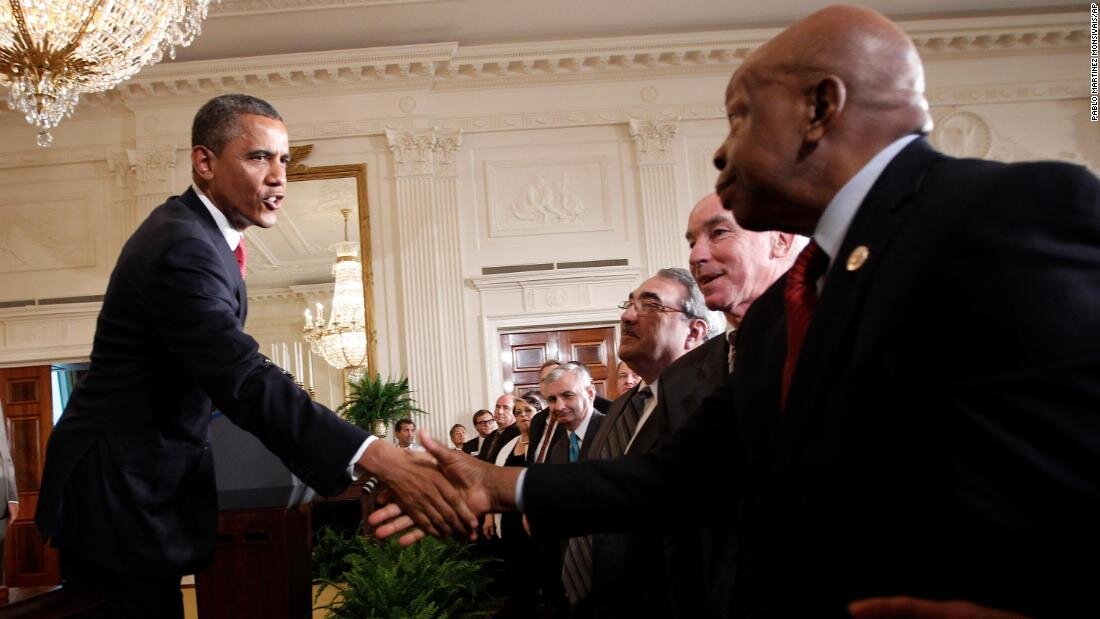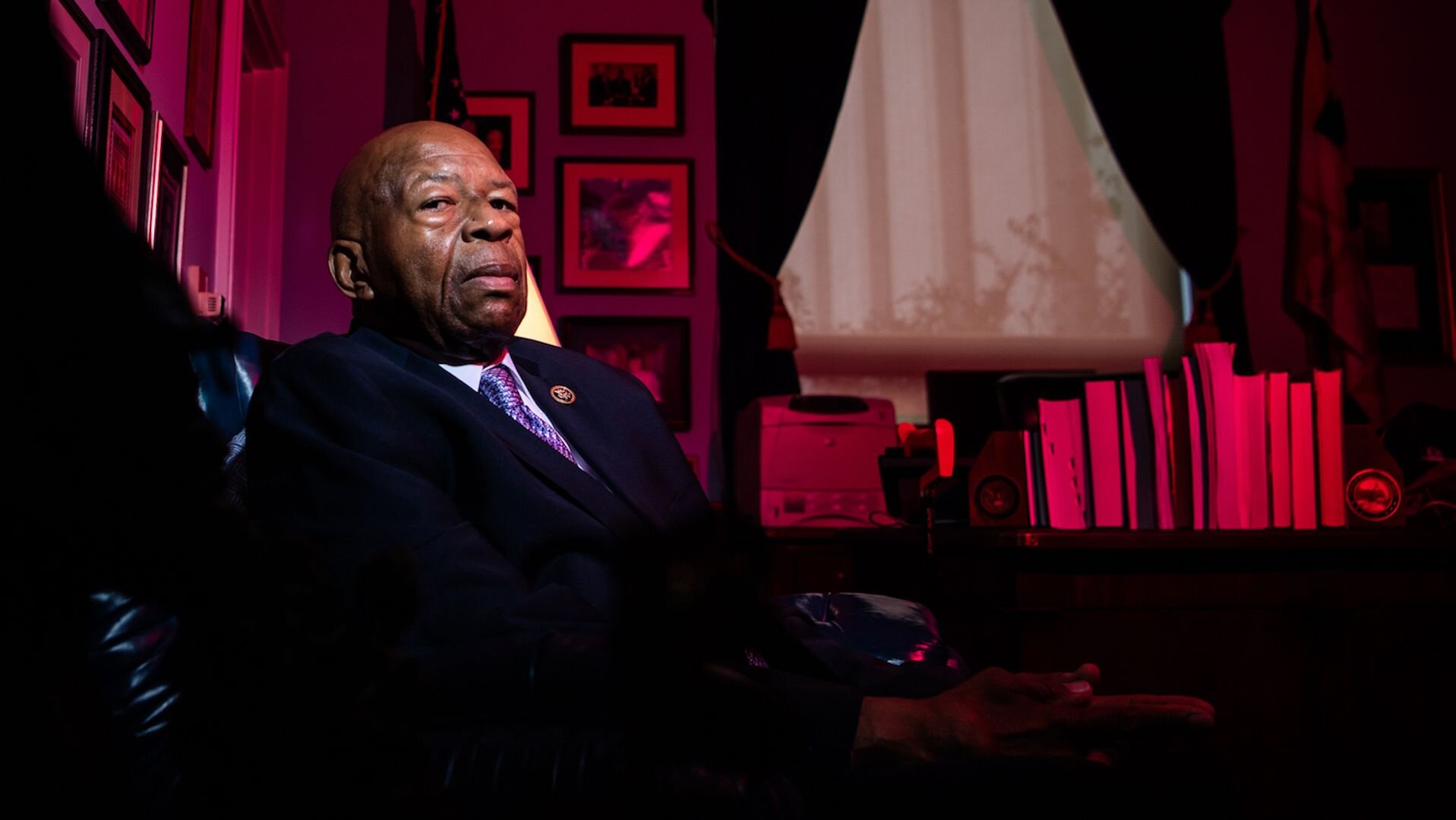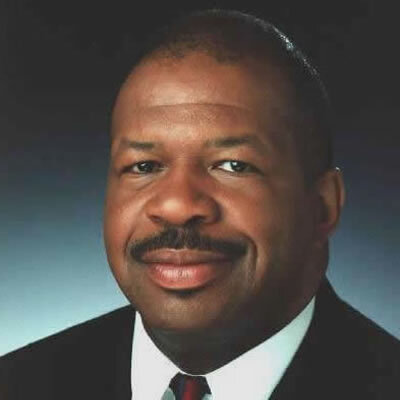Elijah Cummings embodied the spirit of disruption towards equitable change
“Elijah Cummings did more than serve Baltimore…” according to the first half of an opinion headline in the Washington Post. “More than” is something Baltimoreans hear often. The phrase is often used to create catchy affirmations like “we [Baltimoreans] are more than our rough parts”, or “people that come from ‘Smalltimore’ have done more than just live here”. In truth, Baltimore is to be held in high esteem, for producing formidable, equitable leaders like Cummings. Elijah Cummings did FOR Baltimore, and that was more than enough.
Over the past few days, since his passing, we’ve seen countless articles, memes, tweets, and posts covering Congressman Cummings signing of subpoenas and his leadership towards the possible impeachment of Donald Trump. Congressman Cummings was, and his legacy is, more than the subpoenas he signed and more than reaching across the aisle to political opponents. He was a Baltimore leader, born and bred. He displayed some of the best that Baltimore can offer when given the opportunity to thrive.
The pronouncement,“Cummings stood for all Americans” has echoed for days on social media and across news stations. While true, the greater truth is that his work was founded in focusing on the Americans that many forgot about when shaping local and national policies. Many Baltimoreans agree that Cummings was highly accessible despite his roles and activity in Washington, D.C. He was one of the gatekeepers, and now a predecessor to a league of local and national equity agents and advocates. Some may agree that the only way to stand for everyone is to stand for equity; this describes Cummings’ leadership and legacy.
Photo Credits: CNN
There is an origin story for each agent of equity. In the early 1960s, as a young Black boy in the segregated City of Baltimore, Cummings had already begun to challenge the system. At the age of eleven he was part of a group that disrupted a “white’s only” pool in South Baltimore. They didn’t just step in and aesthetically diversify the scene, they disrupted a scene that didn’t want to change. The word disrupt is used to acknowledge the abuses the group of Black youth faced as a result of daring to forage in spaces once exclusive to white people only, resulting in integration.
Elijah Cummings was a disrupter grown and watered in the heart of Baltimore. Prior to his birth, his family had uprooted their lives in South Carolina to follow droves of Black families leaving the Carolinas and migrating to Baltimore. They moved with the hope that they would gain access to less overt racism. They were greeted with more covert social and systemic racism, which was common in the mid atlantic. Maryland is just below the Mason-Dixon Line and was still the south. Cummings and the entire city of Baltimore was reminded of this when he and other Black youths dared to enter the cooling relief of crystal blue chlorinated water on that hot summer day in 1962. During his time in the pool, a person from an angry mob threw an object into the group of children and hit Cummings, leaving him with a scar that commemorated his first battle for racial equity. At that moment, he made a silent vow to put his mark on Baltimore.
Photo Credits: Baltimore Sun
Equitable leaders are “more than” their battles, they’re also the devotion they pour into communities and the way that love blossoms into tangible change and dreams within grasp. He was the epitome of the love that can come from growing up in Baltimore, and is what love looks like in action. He showed us that equity is love in social action. Equitable leaders are the connection to the communities they stand for and support. They are also fond memories of lives transformed by their work, and the ideologies shifted towards equitable lens. Equitable leaders are often marred by their chosen journey. Their battle scars are their celebration and evidence of growth, despite the rocky soil and restrictions from essential nutrients. Elijah Cummings was an equitable leader even when that role seemed endless. He worked tirelessly carrying his silent vow as motivator.
Following his graduation from Baltimore City College, he received his undergraduate degree in Political Science from Howard University, and then went on to earn his law degree from the University of Maryland. Cummings served as a lawyer for nineteen years then became a politician. He served in the Maryland House of Delegates for 14 years and was elected to the House of Representative in 1996. A position he fulfilled until his recent death.
Photo Credits: The Afro American Newspapers
Several of his enacted bills included honoring notable Black figures and having public buildings in Baltimore renamed in their honor, this is an act of ancestral and communal reverence that is integral to the ways Black people honor their foremost leaders, thinkers, visionaries, creatives and disruptors. He also introduced a bill for Women’s History month to recognize Henrietta Lacks. This bill made unmissable mention of the need to address how the experience of a Black woman evolved into something that informs bioethical rights for ALL, as it “recognizes Henrietta Lacks’ legacy, which has contributed to developments in bioethics and patient rights that benefit all people in the United States.” Cummings also introduced a bill recognizing USS Constellation as an American warship “berthed from Baltimore” whose existence served as further evidence of American profiteering and participation within the Trans Atlantic Slave Trade and peoples whose ancestors were trafficked to be enslaved during that time. Congressman Cummings fought many political battles on behalf of his constituents.
He introduced the Baltimore National Heritage Act as a bill, that highlighted the need to preserve spaces of profound Black history in Baltimore city that had national ramifications. In the bill it's noted that Helen Delich Bentley Port of Baltimore was only second to the New York Harbor in being a welcoming harbor for hundred of thousands of immigrants. He also introduced a bill to provide national funding to the great Black in Wax Museum and Justice Learning Center.
Photo Credits: Public Domain
Elijah Cummings had a headstrong political track record for making the people’s issues known. He has a long legacy in policy change, his work included equitable health care, support for small businesses, regulating medication costs, supporting affordable housing, fighting for access to jobs, gainful income for families, and charging care for the local environment.
His legacy articulated by his constituents and opponents shows that equitable leadership is about the human to human connections. This connection creates a tapestry of change. Each experience, dehumanizing or supportive, works to create a tight work of legacy that demands to be acknowledged.
Equity is now a popular term that individuals and organizations across the nation have adopted as part of their language and manipulated that language into their story telling. Whether those new definitions and practices have integrity or not, whether we can find ways to agree in what equity *really* is or not, we know that equity has many avenues, many embodiments, and needs many hands on deck to continue to come into fruition.
Photo Credits: Baltimore Sun
We know that Congressman Elijah Cummings was attending to a large region and was the author of much change. His work must now be disseminated to the many individuals and organizations in this great City of Baltimore (and across the nation) who have been students of his method for change.
Cummings supported community businesses when he sponsored bills towards the small business administration furnishing grants, and “grants award[ed] to historically Black colleges and universities establishing an entrepreneurship curriculum and placement of a Small Business Development Center on the physical campus”. We find kinship to his efforts as we at Baltimore Corps work hard to support social innovation and entrepreneurship in Baltimore City through programs such as the Elevation Awards and Kiva Baltimore. Baltimore Corps envisions Baltimore City empowered to develop, retain, and connect its leaders to achieve an equitable future for all of its residents. Our programs make way for equitable access to realizing and establishing businesses and organizations, and aid in job placement for city residents. Our hope is, like Cummings, that our work is of benefit to neighborhoods seeing the most systemic resource restrictions.
Baltimore Corps is both honored and dutiful towards being part of the many taking this charge, we look to the tangible works and examples leaders like Cummings have left and will do our part to empower, and put into position, people who will further the necessary work towards equitable workplaces which will lead to an equitable Baltimore. We charge others with taking on this duty, as we can’t do this alone. Cummings recognized community, strength and disruption as a vital ingredients in equitable impact. We are taking on these ideals as a manifestation of our grief and celebration of Elijah Cummings, a true leader of Baltimore and surrounding counties.
Learn about Baltimore Corps’ work to effect change in the areas of equity and racial justice in Baltimore City :
Facebook
Instagram
Twitter
LinkedIn
Baltimorecorps.org






